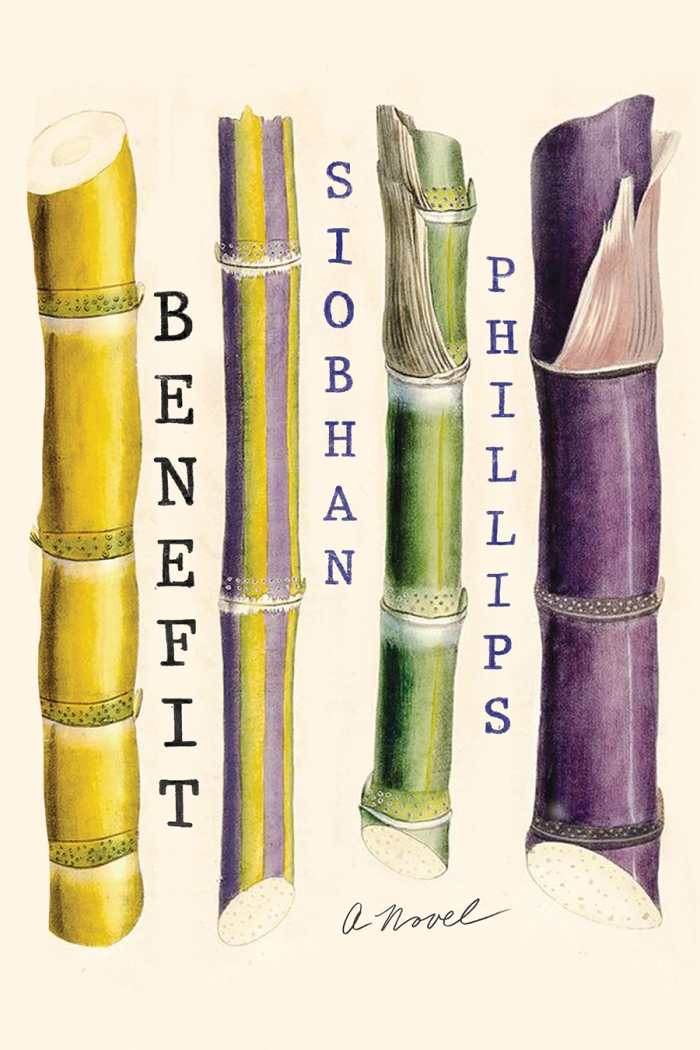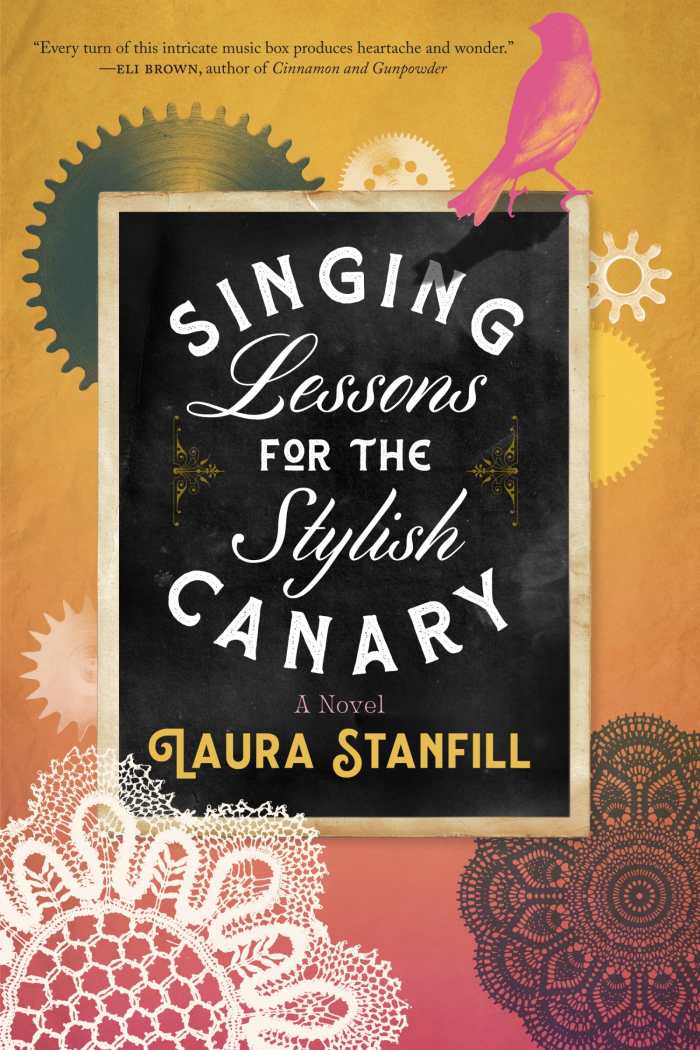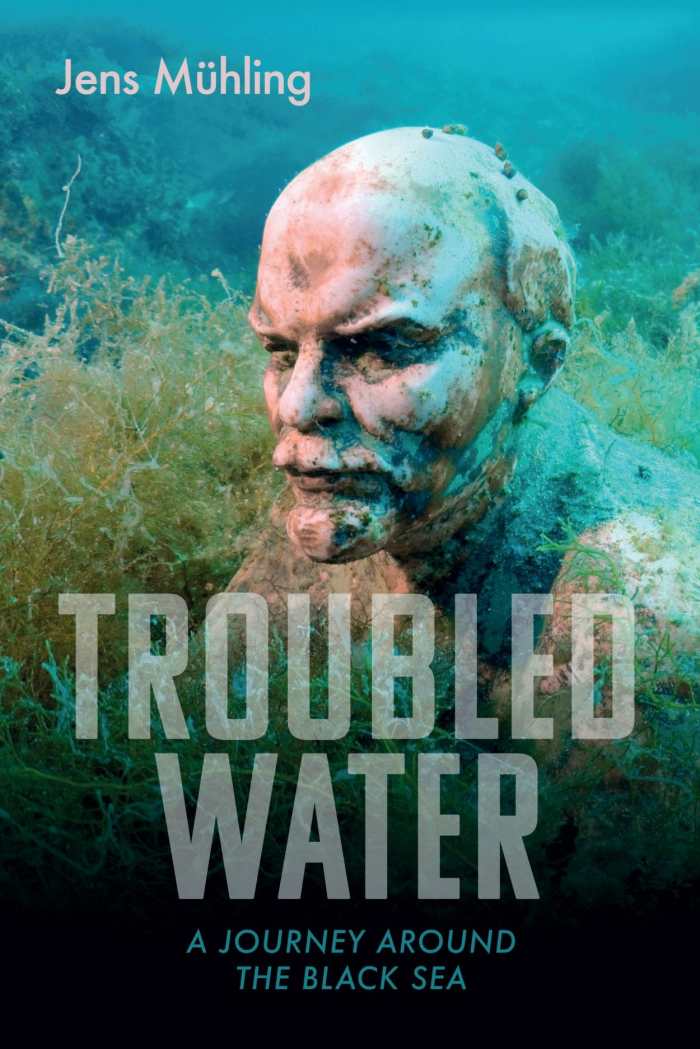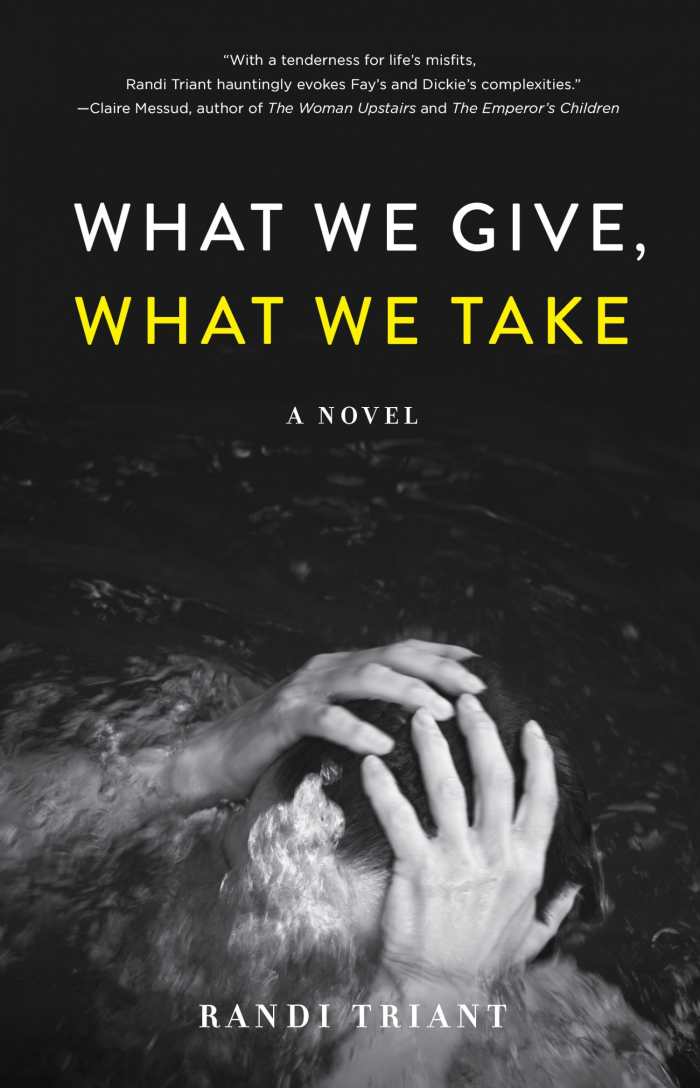Book of the Day Roundup: April 18-22, 2022
I Hate Borsch!

Yevgenia Nayberg
Eerdmans Books for Young Readers
Hardcover $17.99 (56pp)
978-0-8028-5580-0
Buy: Local Bookstore (Bookshop), Amazon
In this vibrant story, a Ukrainian girl resists a national culinary staple. Her family wants her to try just one more spoonful, but she’s definitive about her “No!” The popping, bright illustrations invite attentiveness: there’s a gesture to home on the handle of a spoon; an ingredients list dances over a table on which ghosts of language are etched. This is a delightful exploration of the dimensions of traditions, narrated by a charming, reluctant girl who is surprised to find herself missing borsch.
MICHELLE ANNE SCHINGLER (April 17, 2022)
Benefit

Siobhan Phillips
Bellevue Literary Press
Softcover $17.99 (320pp)
978-1-942658-99-3
Buy: Local Bookstore (Bookshop), Amazon
The incisive, intriguing novel Benefit contemplates standards of accomplishment and value, as well as the ambiguity of capitalistic philanthropy.
A decade before the events of the novel, Laura received a coveted Weatherfield Fellowship, which allowed her to study at Oxford. Coming from a smaller college, Laura was surprised to be included among these “striving, often Ivy League students.”
Laura again becomes involved with the Weatherfield Foundation in 2011, when she is hired to write the institution’s centennial history. She reconnects with her Weatherfield fellows and realizes that while they have achieved varying degrees of success, she has not: instead, she lost her adjunct professor’s position and, numb, moved back into her mother’s house.
The Weatherfield sugar fortunes, made by cultivating America’s sweet tooth, are called into question when Laura’s research reveals how sugar production exploits land and labor and creates toxic working environments. Laura also discovers that the Weatherfield family has its share of secrets and dysfunction.
Laura is compelling as she moves along the sidelines of her friends’ brighter lives. Intelligent and perceptive, she belittles herself as being “not beautiful,” with a “drive towards the uselessly difficult.” She worries about her dwindling bank balance; even with a PhD and a completed literary dissertation, she cannot find suitable employment.
Benefit is a fascinating novel—both a portrait of an industrial empire and revelatory about the elitist greed that often shadows philanthropy. It is also an unnerving glimpse into the impoverishment of academia, as scholars compete for part-time work and paltry salaries.
While the novel leaves Laura in an uncertain state, exiting through a service door after a Weatherfield reception, it also redefines what it means to be a success. As Laura approaches the “fathomless” night, Benefit creates hope that she can attain a sense of greater worth by maintaining her integrity.
MEG NOLA (February 27, 2022)
Singing Lessons for the Stylish Canary

Laura Stanfill
Lanternfish Press
Softcover $18.99 (352pp)
978-1-941360-61-3
Buy: Local Bookstore (Bookshop), Amazon
A town of craftspeople encounters maybe-miracles in Laura Stanfill’s fantastical historical novel Singing Lessons for the Stylish Canary.
Mireville, in rural France, is known for two products: its lace and its serinettes. The Blanchard family has a corner on the latter trade—not only because its eldest son, Georges, is credited with having called forth the sun after years of ceaseless rain. The idea that Georges could have such powers results in a certain amount of esteem—favor that passes on to Henri, who, for all the people of Mireville know, is Georges’s firstborn son. But Georges maintains a secret from New York, where he once traveled to deliver a serinette to a bold woman who trains prized canaries. That secret keeps him from investing in Henri fully.
Henri grows up in the shadow of his father’s reputation, longing for gifts of his own. He’s sensitive and empathetic, which secures the forever allegiance his unlikely best friend, Aimee. But then fortune—or disaster—strikes: Henri comes to believe that he may be able to raise the dead. When Aimee’s malicious brother decides to test his abilities, the Blanchard family privilege wavers.
Stanfill’s novel is thick with the merged language of folklores and music. Evocative details capture the nineteenth century French countryside, where a sense of the miraculous persists, even as the rest of France modernizes. From the smells, sounds, and heat of a New York aviary, to the cold chill of a French jail cell, each setting is enrapturing. And though the novel’s ending somewhat abandons the magic that preceded it, Henri’s tale remains captivating throughout. Singing Lessons for the Stylish Canary is a moving debut about the worlds that open when a parent dares to love their child without reserve.
MICHELLE ANNE SCHINGLER (February 27, 2022)
Troubled Water
A Journey Around the Black Sea

Jens Mühling
Simon Pare, translator
Haus Publishing
Softcover $24.95 (320pp)
978-1-913368-26-5
Buy: Local Bookstore (Bookshop), Amazon
Jens Mühling’s colorful travelogue Troubled Water captures the history and cultures on the shores of the Black Sea.
The Black Sea has been a crossroads for warring and colonizing societies since human civilization began to take form in the Fertile Crescent. Along its contested shores, empires have risen and fallen, and people are constantly on the move, either voluntarily or by force.
Beginning and ending in the Crimean city of Kerch, Mühling spent one year traveling the shores of the Black Sea in search of an answer to what the sea represents today. Each country is given its own chapter, and a quote at the beginning sets the tone for what is to come.
The apparent neatness of the nation-states turns out to be a chimera: in each region, a mosaic of ethnicities, histories, and cultures who have rubbed up against each other for thousands of years is revealed. There are the Pontic Greeks, who trace their ancestry to the Greek colonizers of antiquity and still speak Greek, and the Tsalkan Greeks of the same origin, who speak Turkish instead. There are the Circassians, who went into exile in Syria in 1864, only to be forced to return a century and a half later, and the Cossacks, who were brought to Crimea to replace the Tatars and became the main persecutors of the Jews. There are also the Mingrelians, Abkhasians, and the falcon-loving Lazi.
Against a backdrop of demographic, political, and environmental change, the civilizations of the Black Sea are examined by looking at every situation from more than one angle. Simon Pare’s vibrant translation from the original German brings out the literary qualities of the prose.
Troubled Water is an exuberant travelogue that reveals the complex civilizations that surround the Black Sea.
ERIKA HARLITZ KERN (April 18, 2022)
What We Give, What We Take

Randi Triant
She Writes Press
Softcover $16.95 (336pp)
978-1-64742-405-3
Buy: Local Bookstore (Bookshop), Amazon
In Randi Triant’s novel What We Give, What We Take, a young mother defies the political, economic, and personal forces arrayed against her.
Fay is a single mother who works as a water tank escape artist. Living in ramshackle trailer parks, she struggles to earn enough to support herself and her son, Dickie. She’s haunted by the unfortunate decision that denied him protection from polio.
As the war in Vietnam rages, Fay and her best friend, Ginny, a contortionist, head out to entertain the troops as part of a ragtag carnival. Fay leaves fifteen-year-old Dickie in the care of her abusive boyfriend to do so. Dickie wants to believe that she left for him, but he once caught Ginny kissing his unresponsive mother: “Even at four years old I saw what Fay would give and what she took.”
The book depicts the realities of war with striking intensity. Fay, amid death and destruction, confronts her past, which was marked by bad decisions, loss, and her latent attraction to women. Trapped in a binding contract, she seeks a way home to Dickie, but is thwarted by an event that almost costs her life.
Dickie, after years of abuse from his sadistic caregiver, retaliates, assumes a false name, and flees—first to Florida; then to New York City, where he is taken in by an eccentric artist; and later to Provincetown, Massachusetts, where he lives among artists, drag queens, and drug addicts, reasoning “The hell with the past. All you have is the present. Deal with it.” In this novel, though, the past and present are bound to collide.
At once tender, cruel, sensitive, and raw, What We Give, What We Take is a searing novel in which wounded people make hard decisions in order to survive.
KRISTINE MORRIS (February 27, 2022)
Barbara Hodge
